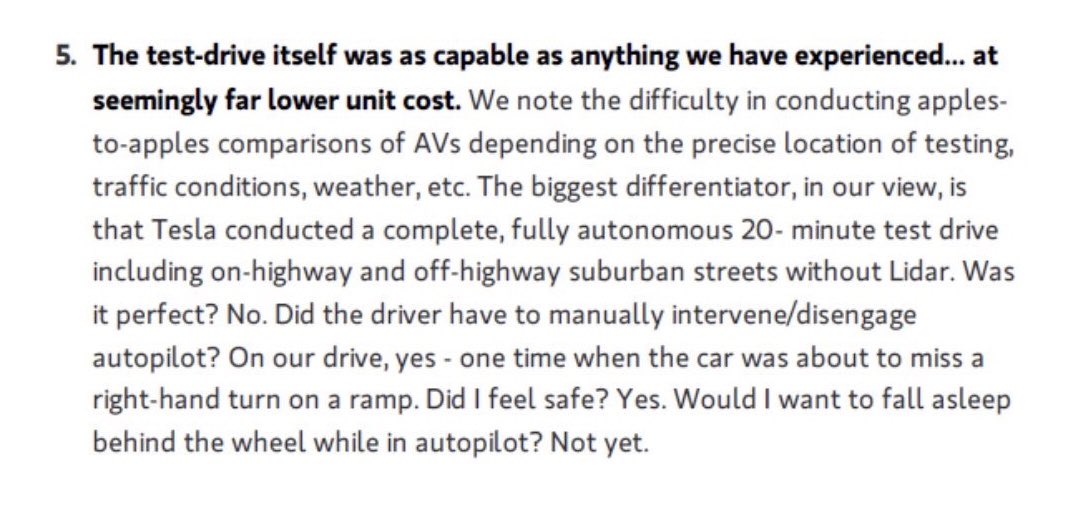The results are consistent with my (and others) hypothesis.
Data showing that people maintain functional vigilance is not "consistent with" (even the weakest kind of support) your claim that people lose functional vigilance. Your claim is just a hypothesis unsupported by any real life data.
And the anti-Tesla/anti-autopilot jihadists like Missy Cummings at Duke and Michael DeKort pray to that hypothesis like a religion with zero real life data in support of it.
Most troubling is that your comments, like the jihadists Cummings and DeKort, utterly ignore the very real safety provided by AP -- the ability to detect abrupt car braking in front and even two cars ahead, or keeping the car safe when a driver is distracted or has a medical event. It is an empirical fact whether there are fewer collisions and injuries with or without AP. And the accidents while under AP is never contrasted with all the accidents avoided while under AP -- that is the overall worthwhile safety issue which the jihadists never deal with.
without good attention management.
Lots of technology can have bad results if it isn't used "without good attention management." But the analysis shouldn't stop there. What is the overall assessment of actual safety results -- how many lives and cars saved compared to lost?
One place I differ with Musk he is continually uses languages comparing humans to driving autonomy. Until we get to L4/L5 that is the wrong comparison. The comparison should simply be:
1) humans without any assistance, and
2) humans with L2/L3 assistance.
Even when some will misuse L2 and L3 and not pay attention and have accidents, my hypothesis is that many more accidents will be avoided and humans with L2 will be safer than mere humans without L2.
This is simply an emprical question that will eventually be answered. Tesla, and MIT and insurance companies will provide the answers eventually. But no intelligent answers are likely to come from mouse model academic jihadists like Missy Cummings and Kacyzinski-esque nutjobs like DeKort.
Last edited:



